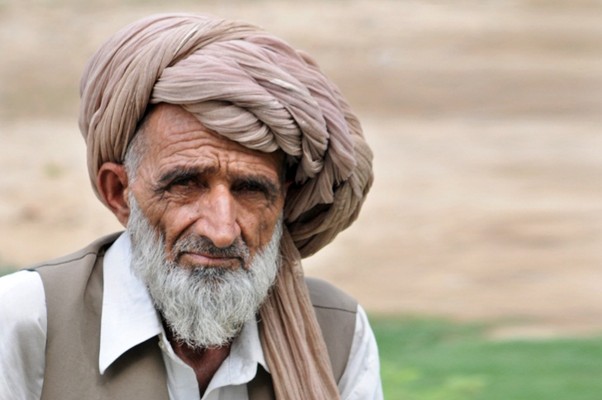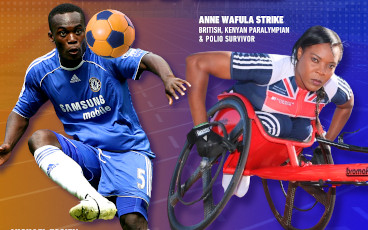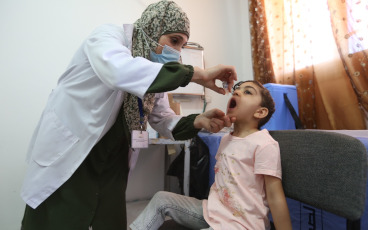Parents defend their children’s right to life
In Pakistan, internally displaced persons leaving North Waziristan are able to protect their children against polio for the first time in 2 years.

The Convention of the Rights of the Child, which marks its 25th anniversary on the 20th November, defines the right of each child to survive and develop to their full potential.
Polio is a virus that causes irreversible paralysis, mostly to children. Before the first vaccine was developed in the 1950s, hundreds of thousands of children around the world were left unable to walk every year. With no cure, the threat of polio was a well-known source of fear for parents everywhere.
In 2014, polio has been dramatically reduced, but still circulates in geographically restricted areas of the world where insecurity prevents health workers to reach children with the vaccine. It has become an indicator of poverty, circulating where health systems are weak and where insecurity leaves children vulnerable, unprotected by the services they have the right to be provided with. That children anywhere in the world continue to be paralysed by this easily preventable virus is an inexcusable violation of the right of children to survive and develop to their full potential.
In North Waziristan, Pakistan, bans on immunization have meant that children have gone without access to polio vaccines since July 2012. North Waziristan is one of the final reservoirs of the virus. “The militants banned vaccination in their strongholds and would punish anyone in public if they were found vaccinating children,” said Salman Shah, a boy in his teens, whose studies in Political Science were interrupted by the unrest.
This summer, military campaigns in North Waziristan caused over a million people from North Waziristan to leave the area to protect their families. As unvaccinated people moved out of the area, the fear grew that this would offer the virus a chance to regain hold in other areas of the country. However, the government of Pakistan and the partners of the Global Polio Eradication Initiative, including WHO, have taken steps to seize the opportunity to reach displaced families at permanent vaccination points as they leave North Waziristan, and in the host communities in which they settle.
In Karak district, where many displaced families are settling, the provincial government is seizing the opportunity to protect every child with the crucial drops of oral polio vaccine. Doctors are going from door to door as part of health teams to vaccinate children free of cost. Noor Wali, a father who was displaced with his 7 children, expressed his gratitude that the government was finally able to reach his family with essential services. He said, “It is so important for us to shield our children from polio and other diseases.” His two youngest children, Noorul Amin and Robina, are finally protected against a disease that has been a severe threat to them since health workers stopped being able to reach their village 4 years ago.
The World Health Organisation has been crucial in ensuring that the displacement of families from North Waziristan was seized as an opportunity. Dr Margaret Chan, the Director-General of WHO, championed the importance of WHO’s role in the field of human rights: “The world needs a global health guardian, a custodian of values, a protector and defender of health, including the right to health.” By working for the past months to reach every family leaving North Waziristan, WHO has helped to ensure that over half a million children have been vaccinated against polio. In supporting governments to do everything they can to prevent life threatening diseases such as polio, WHO plays a crucial role in enabling children to survive and develop to their full potential.
Habib Ur Rehman, the father of 5 children who have now been protected with the vaccine, said: “In Darpakhel, vaccination activities took place under a cloud of fear. But the situation was worse in adjoining areas where vaccination activities were suspended. People have had to suffer a lot. I believe vaccination is the only way to prevent these life threatening diseases.”
Read more about WHO’s work on Child Rights.












